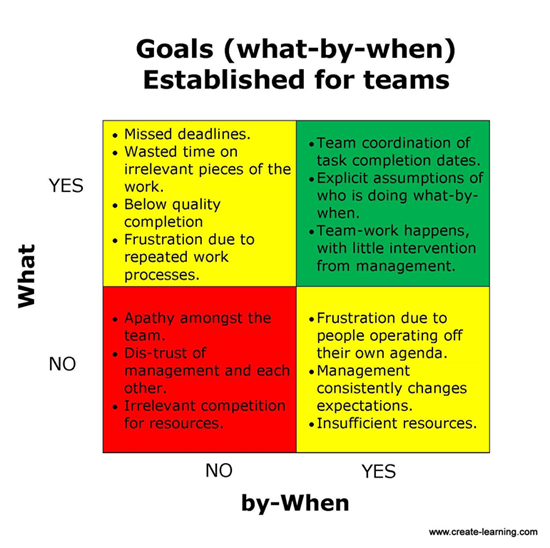Stefan Norrvall wrote a blog, ‘the silly practice of performance reviews‘ in response to a blog I wrote ‘What Criteria can be Used to Judge the Performance of People at Work?‘
Reading his response, we agree on many things.
- System-Drive-Behavior
- Organizational Design / Structure is the ultimate system that drives organizational behavior.
If we have a manager-once-removed | manager | team member vertical management structure that is not ‘Requisite’ – meaning:
- People are too close or too far apart in capacity
- Manager is not ‘big enough’ for the work
- There are too many level of management
- Excessive Trust Repelling
- The company is structured for career aspirations as opposed to getting the work done
Any employee evaluation scheme will be a useless effort, creating more negative behaviors – politicking, scapegoating, manipulation, backstabbing, and rumor-mongering.
The disagreement is in this line from Elliott Jaques:
“An individual’s performance is the relationship between targeted output and achieved output.”
Stefan states, “it is way too simplistic in today’s complex business environment. Firstly all targets are arbitrary, so measuring performance relative to an arbitrary target is just as arbitrary.”
This is where we don’t agree.
I feel in work complexity; the ‘by-when’ targeted achievement of the ‘what by when’ of a goal is more helpful in understanding the priority of the work. Assisting people in knowing accountability & authority of each person, how much effort should go into the task, managements ability to delegate and align steps to achieve more complex goals, examining the talent pool, and ensuring that people are using their full capacity in work and in performance expectations, which may be best to promote and how they are maturing into the expected Level or Work of their current into the future role.
It may be “arbitrary,” and this arbitrariness allows for human judgment in work, allowing it to be completed in complex (readily changing) environments.
All Targeted Output – within a goal that is delegated this is the by-when established by the person delegating the goal to you – are most likely arbitrary because there is and can never be a machine or algorithm that can predict the serial processing and multiple lines of if-then work and changes and unforeseen obstacles that will happen in work.
When you complete the goal, all achieved output within a goal is arbitrary for the same reasons above. If the organization or team moves towards completing goals, then an alignment of tasks that have to happen to move towards (in concert) the goal is needed – defining expected ‘by-whens’ and examining them with the achieved ‘by-whens’….
Within these Targeted & Achieved outputs, managers and manager’s manager can use the 8 Questions and create a possible inter-relator agreement on the manager’s work and their conception of the employee’s output.
My favorite line from Stefan’s post:
“I agree wholeheartedly that feedback is essential but I think annual reviews should be banned; they have no place in a modern organisation. I really do wonder for whom they are valuable, not once have I heard a manager nor a staff member even hint at getting any value from them. Someone in HR however, most likely with a nonsense target about how many have been done, harasses anyone who still has not completed this complete waste of time.”
YES!
The elimination of the painful yearly charade of sitting with your manager and taking 15 minutes to agree on what was your fault and agree on what ‘Exceeded Expectations’ vs. ‘Below Expectations’ – is a leftover practice that is only culturally accepted as “this is how we have always done things.”
Stefan and I both have many better ways and tools to work with this. They all point to removing the cynicism in the workplace – and developing systems that drive and attract trust and the belief that everyone wants to do their best work.
What do you think?
What is good about performance reviews? What alternatives have you found that work?
* the title of this post, ‘Performance Without Appraisal,’ is a chapter title in “The Leader’s Handbook” by Peter R. Scholtes.


